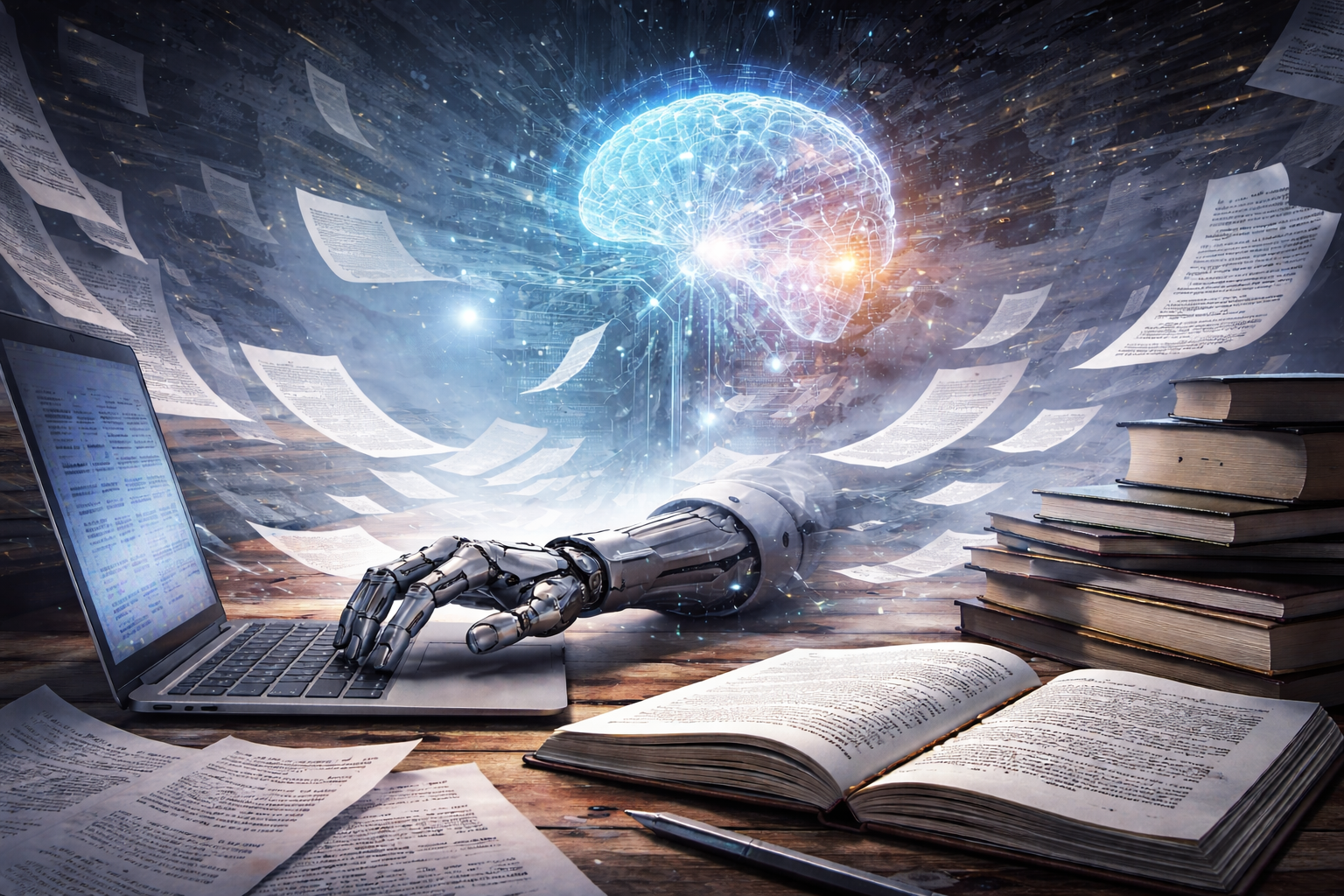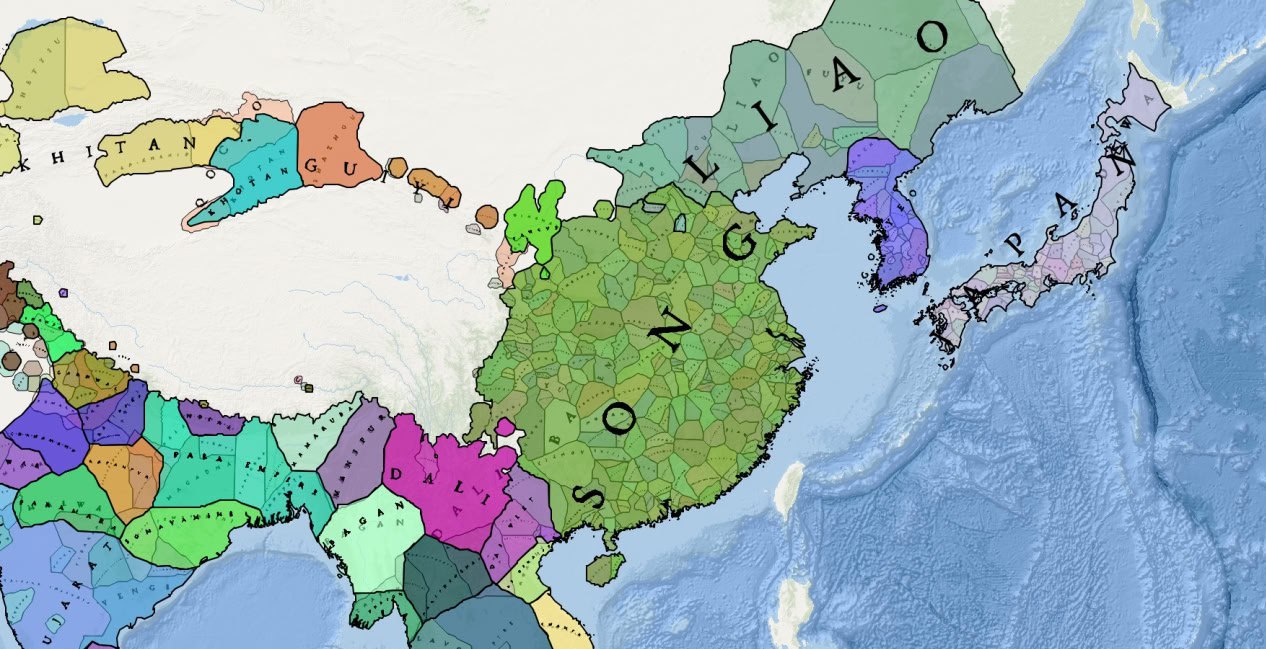AI in History Classrooms: How Artificial Intelligence can Foster Genuine Learning
The Educational Implications of Using AI for Historical Research
Many educators, especially history educators, have dug their heels against the AI Revolution, making valid claims on the challenges of digital media and Artificial Intelligence within the classroom. Yet the advent of Artificial Intelligence dates back far further than most educators care to acknowledge. Educators, especially history educators, have dug their heels into valid claims on the challenges of digital media and artificial intelligence within the classroom.
At present, the use of Responsible ‘AI’ allows researchers to mine through previously insurmountable amounts of resources. This newfound access to a diverse array of historical narratives completely shifts the entire domain of historical research.
For better or worse, the days of meticulously searching for data are over. The task is now to interpret and analyze the data available in an applicable and significant manner. Similarly, history education must shift and stretch educational curriculum and expectations to fit this new prerogative.
The Lack of Digital Media and Resources in History Classrooms
It is no surprise that in our digital age, students express higher motivation and deeper understanding of historical data when digital media is used in the classroom (Heliyon, 2022). This does not just refer to Artificial Intelligence, but truly any kind of digital media. Students prefer interactive media projects to reading a textbook, and they learn more with digital methods.
Yet history classrooms are categorically guilty of being behind the times. Teachers continuously default to classical curricula and techniques, avoiding the use of technology altogether. As teachers cope with endlessly increasing access to knowledge, curriculum stresses breadth of knowledge rather than depth (Sheng, 2023). AI creates the opportunity to deepen curriculum and produce authentic understanding, rather than broad memorization.
This educational system, combined with the lack of AI utilization, has led students to interpret their history courses as uninteresting and resulted in a shallow understanding of history at best. Students are hyper aware of the possibilities created by AI and are eager to engage with them (Sheng, 2023). Still, trepidations about students using chatbots to write papers prevent the implementation of tremendously beneficial change.
ChatGPT and the Fear of Change
If you have read about AI in education or history at all, then you have read about chatbots, specifically ChatGPT. Chatbots have given way to two major, possibly panic driven questions amongst educators:
- What content must history teachers teach when information is instantly accessible to students?
- Has the emergence of chatbots eliminated the need for students to conduct their own research and write their own papers?
It is true that ChatGPT can provide adequate and even exceptional responses and resources that alleviate the obligation of hours of research. However, is it not also that the dawn of the digital age nearly made research in libraries obsolete, save for professionals and true academics?
The reasonable alarm that educators and parents feel about this shift in education is real, but it is not cause for a cease and desist. Instead, we must proceed with ardor. The educational landscape has changed yet again, and educator expectations of students must change with it. The new focus need not be on the collection of knowledge, but on the appraisal of resources and data and, furthermore, the elucidation of that information.
The Obvious Advantages of AI in the Classroom – for both educators and students
For Students
Student focus must be on determining the reliability and bias of resources, both AI generated and manmade, alike. Students can engage with deep analysis of the information, focusing on present-day applications and implications. They may create new ways to present this information, ones that AI cannot produce, focusing on creativity and discernment (Trust & Maloy, 2023).
- Contemporary Applications
As students work with AI, they must determine the importance of the plethora of information available. The emergence of AI requires students to strengthen and stretch different muscles. The focus is now on skills such as linking the past to the present, understanding how it affects modern issues, and applying this knowledge for the benefit of the now.
- Creative Content
AI can turn out large numbers of resources, but it cannot do everything. Humans, students, can focus on building interactive maps, multimodal timelines, or other digital media which require creativity for proper development (Dené Poth, 2022).
- Discernment
With the elimination of the time spent on searching for information, students can focus on the evaluation of the material, determining the bias, validity and reliability of the information provided.
For Educators
Educators must also take advantage of this new tool. AI, with proper coding, can create and evaluate more ethical, reliable and valid standardized history exams (Bertram et al, 2021). It can produce classroom resources, saving teachers precious time and upholding, if not increasing, educational standards. It provides windows for deep, personalized instruction and methods to accurately gauge and advance learnings
- Standardized Exams
Computational methods can be used to create reliable, valid and low-bias assessments, as well as to score students’ writing based on content validity (Bertram et al, 2021).
In combination with human evaluation and with proper coding, computational methods can be used to accurately create and score interpretive writing (Bertram et al, 2021).
- Classroom Resources
AI can be used to create readings, assessments, lessons, activities, discussion prompts and more.
- Personalized Learning
AI makes it possible to collect massive amounts of student data, evaluate that data and provide educators with invaluable knowledge about students strengths and weaknesses.
AI can also create personalized materials to target student weaknesses and uplift student strengths.
Overcoming Opposition and Facilitating Learning
Despite resistance, the format of history education is changing. With the implementation of AI in research and the classroom, history courses are behind the curve. History students, educators and researchers alike would benefit immensely from responding with enthusiasm to, rather than cautiously obliging, our new digital landscape.
References
Bailey-Watson, W., Using Artificial Intelligence to support history teaching. One Big History Department (2023)
Leaton Gray, S. (2020) ‘Artificial intelligence in schools: Towards a democratic future’. London Review of Education









